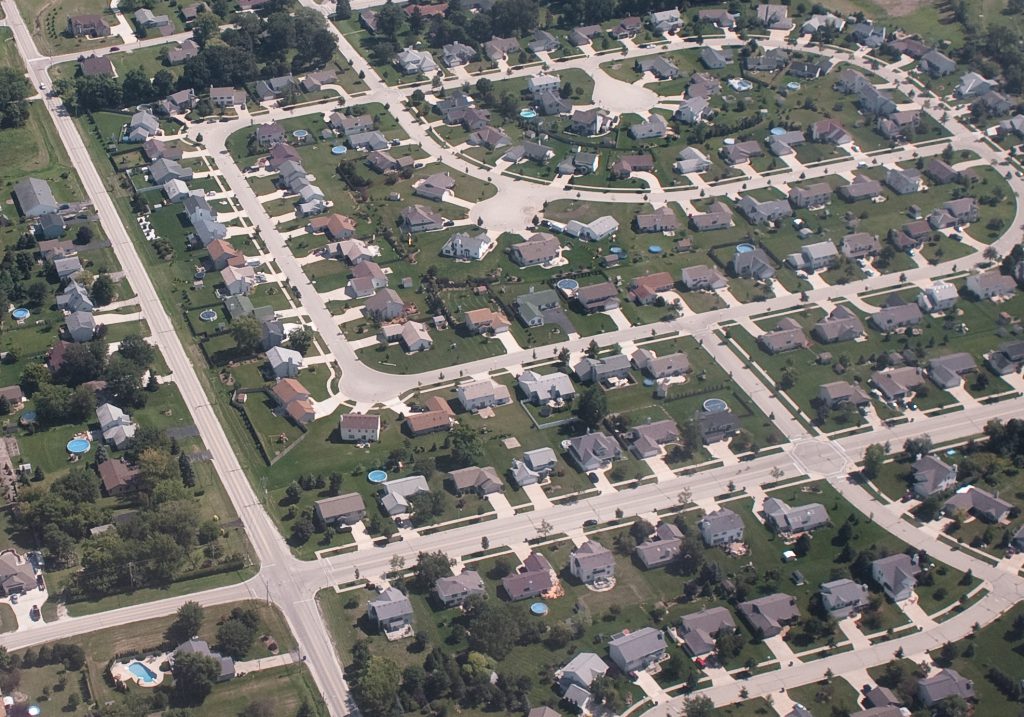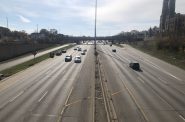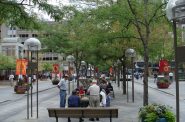The Need to Redesign the Suburbs
All the city news you can use.

Milwaukee suburbs. Photo by Richard rxb Flickr. (CC BY-SA 2.0)
Every day at The Overhead Wire we sort through over 1,500 news items about cities and share the best ones with our email list. At the end of the week, we take some of the most popular stories and share them with Urban Milwaukee readers. They are national (or international) links, sometimes entertaining and sometimes absurd, but hopefully useful.
The suburbs need a retrofit: Low density exurban areas are no longer inhabited by the people they were designed for. By redesigning and rezoning for higher density and lower income households, suburbs can become much more livable for the one to two person household. Jane Williamson and Ellen Dunham-Jones discuss their book of urban design strategies for creating more socially, ecologically, and economically healthy suburban communities. (Shayla Love | Motherboard)
Charlotte finds a new way to do affordable housing: In Charlotte, a local journalist watched the housing market and “naturally occurring” affordable housing and found that there are still ways to provide affordable housing through real estate changeover and longer term patient investments. It’s a model that is possible to replicate and could win over social impact investors and staunch capitalists alike. (Nate Berg | Fast Company)
Travel demand models assume growth not values: Texas has modeled transportation infrastructure on assumptions about increased congestion, but building more roads only increases car travel. There are opportunities and examples of active transportation, with bikeways in Houston and talks of high speed rail. Ultimately, Texas must build for an end goal and what people actually value, not for current habits. (Christof Spieler | Texas Architect)
Amsterdam tries a new economic model: Doughnut economics, a system in which governments reach social goals set within ecological limits, is slowly being adopted in Amsterdam. The model requires economic actions that put environmental limitations and social needs first. In practice, this means collecting old denim, social and environmental taxes on zucchini and “materials passports” for developers so that building materials are not wasted. (Ciara Nugent | Time Magazine)
Alissa Guther contributed to these summaries.
Quote of the Week
Public officials, economic developers, urbanists and others should take particular note of how mesofacts contribute to the perception of place. Places are shaped by forces that are always changing, but our perceptions don’t always keep up with the pace of change. Some cities ride the wave of a positive mesofact long after it can still be delivered, while others are stuck with negative, outdated mesofacts that act against revitalization.
–Pete Saunders in Governing Magazine discussing how ‘mesofacts’ can make or break a city moving forward.
This week on the podcast, we’re joined by Professor Sean Benesh to talk about his new book Intro to the City.
Want more links to read? Visit The Overhead Wire and signup. https://mailchi.mp/theoverheadwire/urban-milwaukee
Urban Reads
-
How Traffic Noise Impacts Children’s Brains
 Jul 1st, 2024 by Jeff Wood
Jul 1st, 2024 by Jeff Wood
-
Number of Super Commuters is Rising
 Jun 22nd, 2024 by Jeff Wood
Jun 22nd, 2024 by Jeff Wood
-
Why Has the Walkable City Been Villainized?
 Jun 9th, 2024 by Jeff Wood
Jun 9th, 2024 by Jeff Wood




















